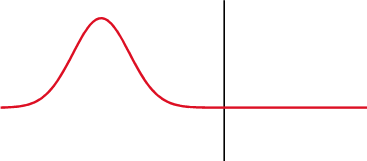
Back معامل الانعكاس Arabic Coeficient de reflexió Catalan Reflexionsfaktor German Coeficiente de reflexión Spanish ضریب بازتاب Persian Pekali pantulan Malay Refleksjonskoeffisient NB Coeficiente de reflexão Portuguese Коэффициент отражения (оптика) Russian Reflection coefficient SIMPLE
In physics and electrical engineering the reflection coefficient is a parameter that describes how much of a wave is reflected by an impedance discontinuity in the transmission medium. It is equal to the ratio of the amplitude of the reflected wave to the incident wave, with each expressed as phasors. For example, it is used in optics to calculate the amount of light that is reflected from a surface with a different index of refraction, such as a glass surface, or in an electrical transmission line to calculate how much of the electromagnetic wave is reflected by an impedance discontinuity. The reflection coefficient is closely related to the transmission coefficient. The reflectance of a system is also sometimes called a reflection coefficient.

Different specialties have different applications for the term.
© MMXXIII Rich X Search. We shall prevail. All rights reserved. Rich X Search